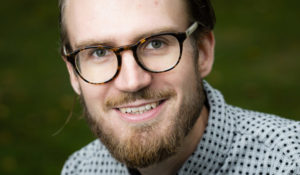
Ilkka Lindstedt holds a PhD and title of docent in Arabic and Islamic Studies at the University of Helsinki, where he is currently University Lecturer in Islamic Theology at the Faculty of Theology. He has published studies on early Islam, Arabic historiography, and Arabic epigraphy. Recent edited volumes in English include the co-edited Case Studies in Transmission [Ugarit-Verlag (2014)] and forthcoming Translation and Transmission in the First Millennium, also with Ugarit-Verlag. He is currently University Lecturer in Islamic Theology at the Faculty of Theology. (Also see academia.edu page)
Given the way in which many introductory courses present the history of early Islam and pre-Islamic Arabia, we may be tempted to think that the historical facts were well established and the narrative uncontested. However, this is far from the case. What evidence do we actually have from this period, and how may it challenge the conventional narratives that have become canonised in sacred and academic histories? What misconceptions might be challenged by modern epigraphic work, or the application of Social Identity theories to ancient texts? And why might this matter for contemporary Islam, contemporary Islamic Studies, and the critical study of religion more broadly? Joining Chris to discuss these questions, is Dr Ilkka Lindstedt of the University of Helsinki.
This work is licensed under a Creative Commons Attribution- NonCommercial- NoDerivs 3.0 Unported License.
The views expressed in podcasts, features and responses are the views of the individual contributors, and do not necessarily reflect the views of The Religious Studies Project or our sponsors. The Religious Studies Project is produced by the Religious Studies Project Association (SCIO), a Scottish Charitable Incorporated Organisation (charity number SC047750).